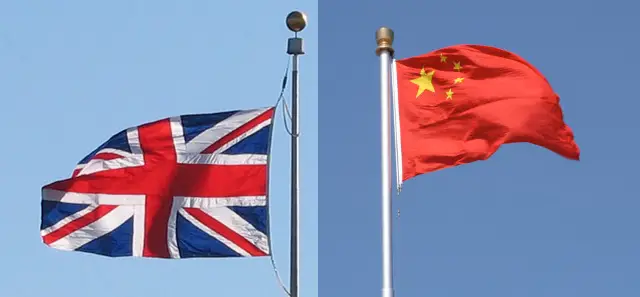Readers may remember that during the summer, journalism student Jiawen Zhou interned with OnTheWight.
Jiawen, who joined us from China (via Sheffield), attended a couple of the Isle of Wight council meetings with us, so we asked Jiawen to research a comparison between the way local government works in UK and China.
With this week’s UK Media attention on the Bo Xilai local official corruption trial, it has a particular resonance – Ed
The system of governance in China is a combination of centralism and federalism, with a certain degree of autonomy granted to local governments. Similarly, government in the UK is provided in two ways: central and local.
Each province, city, town, prefecture and county in China is overseen by a parallel group of local leaders and Communist party officials.
The UK, however, is divided into 650 Parliamentary Constituencies at a national level. In each Constituency, voters elect a Member of Parliament (MP) to sit in the House of Commons and represent them.
It seems that the UK, compared to China, has a more democratic political system and opinions from the public can be more efficiently heard.
China: Communist rule
The Communist Party maintains control nationwide in China through a network of committees that oversees the administration of the country’s local governments, universities, industries, schools and army units. Local officials are usually put in post by senior officials and claimed by party committees.
Villages and towns may have elected chiefs and mayors, but they generally have been nominated by the Communist Party and have little power anyway. In cities and provinces the most powerful leaders are not the mayors and governors, but are the party secretaries.
UK: Elected councils
In contrast to the permanent dominance of the Communist Party in China, the UK has local council elections, held usually the same date as the general election, in which no party maintains permanent victory.
For example, after the 2013 local council elections, Independent candidates became the largest group on the Conservatives lost their ruling majority after two terms in power.
China: County governments
Running the show in China are county governments, under the supervision of Beijing. They levy taxes, enforce one-child family planning policies and have jurisdictions over police that are authorized to crack down on religious and political activity.
At a local level in the UK, the country is divided into a series of local authorities or councils. Councils provide services in their local area. Local government in the United Kingdom has long acted as an agency of the state. It fulfils many functions required by the central government to ameliorate social problems throughout the years.
China: Problems with corruption in local government
In China local governments are more often controlled by local party officials and are pretty much left up to their own devices in earning revenues and providing services. In order to earn revenues, lots of efforts are put into collecting taxes, bribes and running state-companies. According to a feature titled “Taking on China’s corruption” published by the BBC last year, China’s Communist leaders worry that corruption within the ranks of the Party is one of the greatest threats they face.
Local governments have more authority, less oversight and more money than they did in the Mao era. Decisions and directives made in Beijing are not always carried out on the local level. However, central leaders are often unaware of what is really happening at the localities through normal bottom-up channels.
This situation often results in corruption and an emphasis on development over environmental concerns. It often seems that the central government is too timid to enforce their orders or that corruption culture is too embedded for anyone to do anything about it.
China: Municipal governments
Municipal governments, which own all land in China, largely depend on sales of long-term property leases to fill their operating budgets. In many cases, private real estate companies collude with officials to clear and develop the land as quickly as possible.
In the UK, local government boundaries owe their current basis to local government legislation, though voluntary mergers are permissible under the law. The Local Government Boundary Commission for England is now responsible for the overall examination of local government boundaries and structures.
Conclusion
Although the overall governing systems in China and the UK are similar in nature, they have differences in many aspects, including party control and local government’s autonomy.
Generally, China has a less democratic political system than the UK. In China, the Communist Party leads a dominant control through naming local officials. County governments in China have a certain degree of autonomy.
In contrast, the UK has councils in which no party consistently wins the election and MPs are often elected to represent his/her constituency in the House of Commons. Local governments in the UK have traditionally acted as an agency of the State.
Image: Chris Breeze under CC BY 2.0
Image: Geoff McKim under CC BY 2.0





